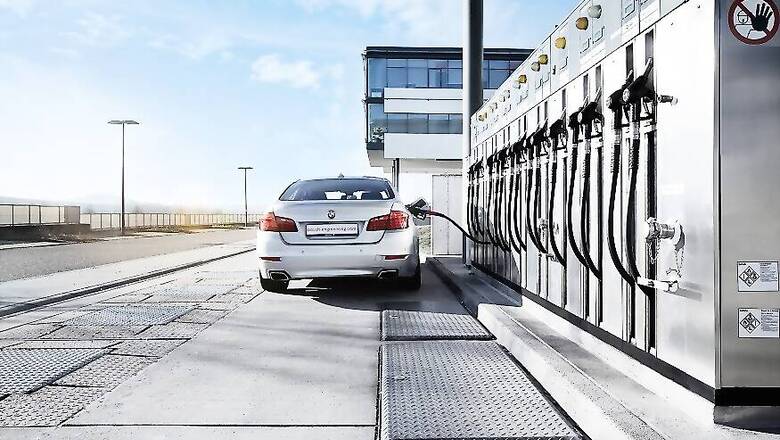
views
We may well be entering the first serious stage of the electric car revolution. Over the course of 2016, demand jumped by another 60% and in doing so nudged worldwide sales up to the 2 million model mark. What's more, by April this year, they finally represented a full 1% of all new cars sold. However, that doesn't mean that the internal combustion engine's days are numbered. In fact, Bosch's latest research suggests that it could still play a decisive role in cutting pollution and emissions.
Demand for the raw materials that make up an electric car battery -- lithium, nickel and graphite -- have never been higher. Don't forget, they're also the raw materials that keep our smartphones, tablets, laptops and even hand tools going.
And while lithium itself is an abundant mineral, mining it or evaporating it from brine is a complex operation with many mitigating factors. As a result, according to Benchmark Mineral, lithium carbonate is currently trading at $14,250 a ton and there is roughly 60kg of lithium carbonate in a Tesla Model S battery pack.
The supply chain will eventually mature in terms of consistency of product and price, but not fast enough for electric cars to be the sole solution to meeting the targets laid out in the Paris agreement. They demand a 50% cut in global vehicle CO2 emissions by 2050.
"Achieving our future climate targets calls for other intelligent solutions apart from electromobility," said Robert Bosch GmbH chairman Dr. Volkmar Denner.
That's why Bosch has this week detailed the work it has started on the development of synthetic carbon-neutral gasoline and diesel. It's a hugely expensive endeavor and one that's in its infancy, but if successful, it could mean that all vehicles already on the road are no longer adding to the CO2 deficit.
What's more, vehicles -- whether a classic Ferrari or a truck -- wouldn't need any form of conversion to run on the fuels and traditional mechanics and fuelling stations would also remain in business; no infrastructure investment, such as fast charging stations would be needed. With this in mind, the investment needed to create the fuels starts to make economic as well as environmental sense.
However, there are several caveats. The biggest is that these fuels require an energy source for their creation. If the electricity used to extract hydrogen from water -- the first step of the production process -- isn't clean, then the fuel isn't carbon neutral. The challenge of cleanly capturing hydrogen is also why fuel cell cars are still very, very much in their infancy and the filling station network non-existent beyond California.
But if the fuels can be created via clean or renewable energy sources, then they represent a viable medium-term solution to cutting emissions. Especially because unlike biofuels, which are similarly carbon neutral, these fuels don't need organic matter that could have been used as food, for their creation. Instead, the hydrogen is mixed with carbon collected from the atmosphere to make a fuel that can be burned by any gasoline or diesel engine.


















Comments
0 comment